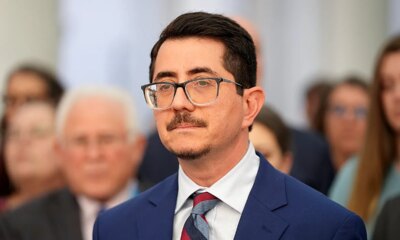Seven years have passed since the Texas Legislature saved the Dallas Police and Fire Pension System from the fund’s bumbling former management and reckless real estate investments.
The bailout bought time to devise a long-term solution to a more than $3 billion funding shortfall. Yet, as a deadline approaches, the sides remain at odds over whether the city should have oversight and how much money it should contribute annually over the next 30 years.
The pension board contends it has sole authority to adopt a pension plan and wants larger contributions than the city says it can make without seriously cutting other city services. And the city contends the impact of the past pension crisis and state law require that it be involved in formulating the plan. And with good reason. Hundreds of Dallas police officers fled into retirement and jobs in other cities.
We side with the city. The pension board’s decision to take the dispute to court is shortsighted. Dallas is in this mess because of the pension system’s poor management, and city taxpayers are on the hook.
Specifically, the pension fund wants the city to contribute dollars at a faster pace so retirees can get cost-of-living adjustments sooner. Dallas favors a less aggressive funding schedule, beginning with a more than $202 million contribution in the next city budget. This would put the city on a path to properly fund the pension but would cost the city roughly $419 million less over the funding period.
The police and fire department’s rank-and-file members didn’t create the problem but continue to pay the price for poor oversight and past mistakes. Previous pension management made self-dealing investments, and past city councils failed to put aside dollars so that they could spend elsewhere.
City officials aren’t oblivious to the financial pressure on retirees or the demoralizing message another pension debacle would send to public safety workers. The city is considering an extra end-of-year paycheck for pension beneficiaries, a one-time 1% payment to retirees’ pension base in 2025 to help bridge the cost-of-living gap and perhaps another 1% stipend a year based on the pension fund’s investment performance. However, city officials also are right to say the pension fund needs to carry its share and produce better returns on its investment portfolio, which lags those of peer cities, according to a recent consultant’s survey.
Neither side can afford this stare-down to precipitate another rush of officers to other jobs, and all parties should be reminded that the fund isn’t the city’s or pension board’s private kitty, which is how it had been treated in the past.
The fund is the retirement promise made to public safety employees for their service to Dallas. In keeping that promise, both sides must compromise to break this dangerous impasse, commit to greater transparency, communications and accountability, and most of all, stop playing games with other people’s money.
We welcome your thoughts in a letter to the editor. See the guidelines and submit your letter here. If you have problems with the form, you can submit via email at letters@dallasnews.com

















































